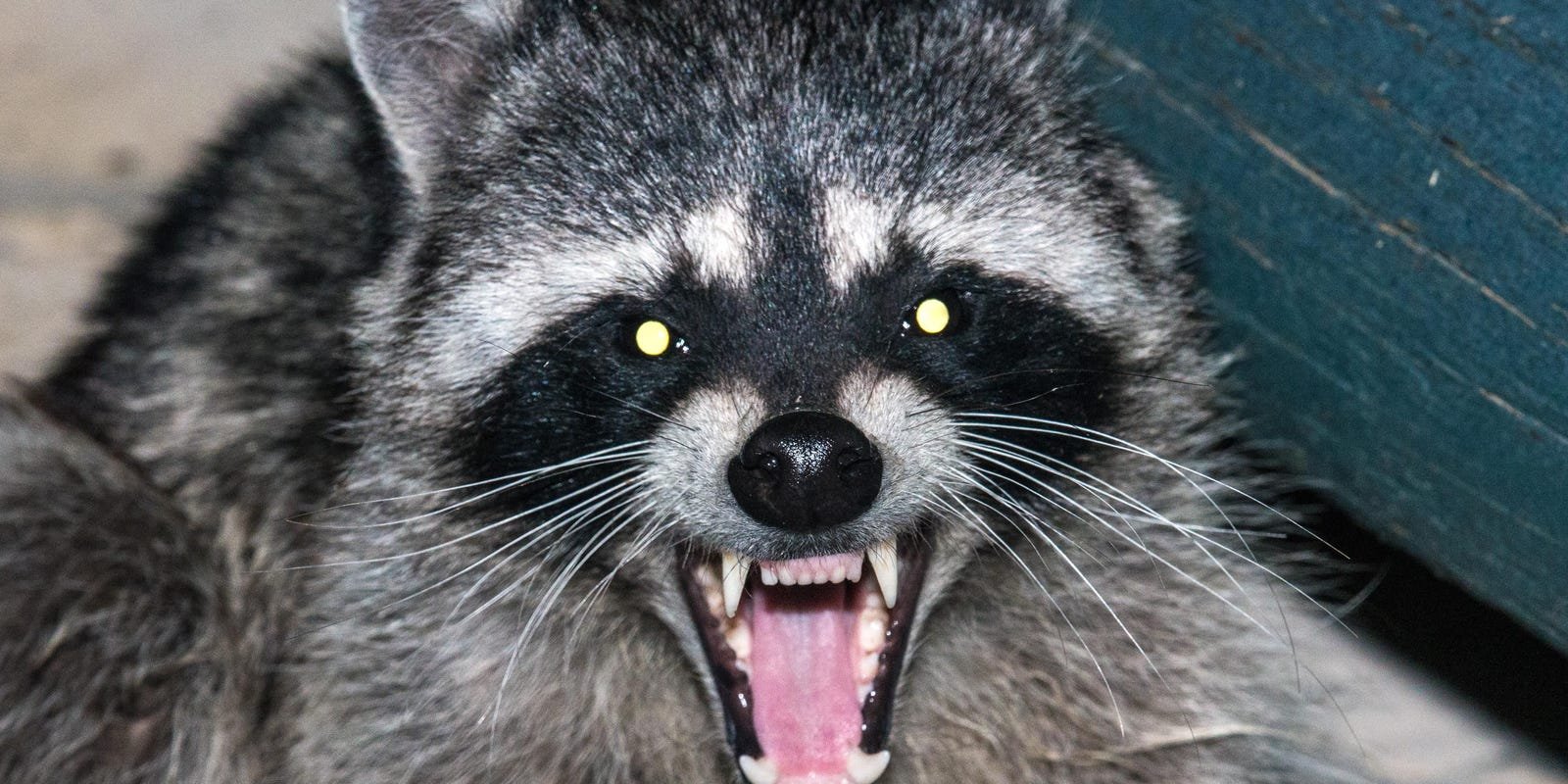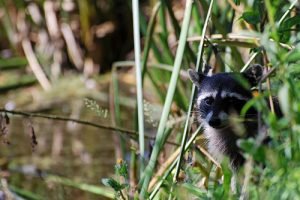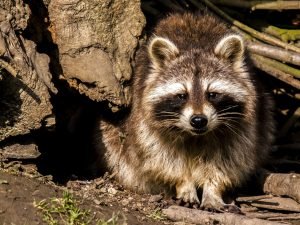Raccoon Roundworm: Baylisascaris

What Is Raccoon Roundworm?
Baylisascaris worms are parasitic worms that live in the intestines of a wide range of animals. Baylisascaris species are associated with a variety of animal hosts. Raccoons, for example, have Baylisascaris procyonis, while skunks have Baylisascaris columnaris. Infections with Baylisascaris in humans are uncommon, but they can be deadly. Because raccoons are frequently associated with human dwellings, Baylisascaris procyonis is thought to pose the greatest risk to humans.
In the United States, Japan, and Europe, Baylisascaris procyonis has been discovered. In South America, there has been some evidence of infection in animals. Infected raccoons have been found in several states across the United States, particularly in the mid-Atlantic, Midwest, and West Coast states. 1Go To Source cdc.gov -“About Baylisascaris”
Learn More: Common Diseases Of Wild Animals
Which Species Are Affected By Roundworm?
B. procyonis has been found in a variety of states, but it is most likely found wherever the raccoon lives. Infections are found in anywhere from 3.4 percent to nearly 100 percent of all raccoons studied. Raccoons across the United States have been infected with the parasite. Mice, squirrels, rabbits, birds, woodchucks, and chipmunks are among the intermediate hosts that have been diagnosed with Baylisascaris infection. 2Go To Source michigan.gov -“Raccoon Roundworm (Baylisascaris)”
How Can Animals Catch Raccoon Roundworm?

Animals, like people, become infected by touching an infected animal’s skin or hair or by touching infected items such as blankets and towels. Roundworm also spreads through feces. Animals in the wild that come into contact with other animal’s dropping can contract the disease.
Raccoon roundworm is commonly spread during the consumption of another species. Larger animals will eat raccoons and transfer the parasite into their own bodies.
Can People Or Pets Contract Roundworm?
Roundworms are a serious threat to humans. Human infection can occur as a result of ingesting contaminated soil or dog feces. Roundworm eggs can build up in large numbers in the soil where pets leave their feces. Once infected, the worms can cause symptoms in the eyes, lungs, heart, and nervous system.
Children shouldn’t be allowed to play in areas where animals have defecated. Individuals who come into direct contact with soil contaminated by cat or dog feces should immediately put on gloves or wash their hands.
Symptoms Of Roundworm In Humans
Loss of coordination, tiredness, liver enlargement, lack of attention to people and surroundings, loss of muscle control, nausea, blindness, and coma are all possible signs and symptoms of raccoon roundworm infection. After exposure, symptoms will appear 1 to 4 weeks later.
Roundworm Symptoms In Animals

Raccoons infected with raccoon roundworm are usually asymptomatic, but in young animals, massive infections can cause intestinal obstruction. Intestinal infections in dogs are most commonly discovered during routine fecal examinations and do not usually cause significant clinical signs.
Some animals may exhibit nonspecific symptoms such as lethargy, depression, a rough hair coat, or ruffled feathers. Most diagnosed cases have a neurological disease, which can manifest itself in various ways, including circling, rolling, torticollis, ataxia, tremors, progressive weakness, paralysis, hypertonia, extensor rigidity, seizures, or dysphagia. Birds may struggle to perch or lose their ability to fly. Blindness and other visual defects may be observed. Clinical signs appear suddenly in some animals and progress quickly. 3Go To Source cfsph.iastate.edu -“Baylisascariasis”
How Harmful Is Roundworm?
Most human Baylisascaris infections have been fatal in the past, but it’s possible that faster diagnosis and treatment improved recent cases’ outcomes. Regardless, the raccoon roundworm can be extremely dangerous to humans, with a poor prognosis.
How To Prevent Contracting Raccoon Roundworm?
Humans can prevent contracting Baylisascaris can by avoiding contact with raccoons and their feces. Washing your hands after working or playing outside is a good habit of avoiding a variety of diseases.
Raccoons should not be fed or adopted as pets. Raccoons rarely show symptoms of infection, so you can’t tell if one is infected by looking at its behavior. Roundworm eggs are not visible to the naked eye in the feces of infected raccoons. Eggs are only visible under a microscope.
Raccoon feces can contaminate areas and materials, so stay away from them. Raccoons usually defecate at the base of trees or in raised forks and raised horizontal surfaces like fallen logs, stumps, or large rocks. Raccoon feces can also be found in attics, garages, and haylofts, as well as on woodpiles, decks, and rooftops. Feces are dark and tubular, have a strong odor (usually stronger than dog or cat feces), and frequently contain undigested seeds or other food items. If you have raccoon feces in the home, contact a wildlife removal company for a safe clean-up.
What To Do If You Or Your Pet Have Raccoon Roundworm?
The majority of infected humans and animals are treated with drugs (anthelmintic agents). Depending on the species of infecting roundworms, different agents are used. Identifying the species of infecting roundworms is usually enough to make a diagnosis. This usually entails identifying the parasite eggs, which are usually found in the patient’s feces. Some can be identified through tissue biopsies, blood smears, or immunological methods specific to individual types of roundworms.
If your pet is showing raccoon roundworm symptoms, it’s advised to take them to the vet right away. The only way to be sure your pet has roundworms is to have it tested. There are not any visual signs that are only present for roundworm. Make sure to test your pet right away to avoid the spread of roundworm to people and other pets.
Check your property for raccoon dropping because feces is the most common way pets/people are infected with raccoon roundworm. If raccoon droppings are found in or around your home, contact a certified animal removal technician right away. They have the proper equipment and training to decontaminate the home and dispose of the dropping without spreading the disease.
Sources:
- “CDC – Baylisascaris – General Information – FAQs.” Centers For Disease Control And Prevention, U.S. Department of Health & Human Services, www.cdc.gov/parasites/baylisascaris/gen_info/faqs.html. Accessed 19 Mar. 2021.
- “DNR – Raccoon Roundworm (Baylisascaris).” Michigan Department Of Natural Resources, STATE OF MICHIGAN, www.michigan.gov/dnr/0,4570,7-350-79136_79608_85016-27261–,00.html#:%7E:text=There%20are%20several%20intermediate%20hosts,birds%2C%20woodchucks%2C%20and%20chipmunks. Accessed 19 Mar. 2021.
- Spickler, Anna. “Baylisascariasis.” The Center For Food Security & Public Health, Iowa State University, 2013, www.cfsph.iastate.edu/Factsheets/pdfs/baylisascariasis.pdf.
